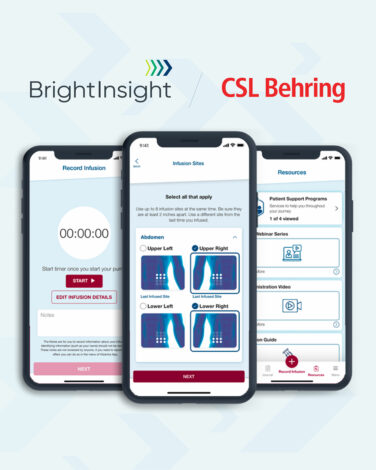Prior to joining Inizio Engage in early 2023, Jenny spent more than 17 years in Medical Information where she strategically designed and delivered multilingual teams across Europe, MEA, the Asia-Pacific region, and the Americas. PM360 reached out to find out how medical information is changing from a global leader in the space.
 PM360: Can you explain a little bit more about how medical information has evolved from a regulatory and compliance focus to a more strategic part of medical affairs?
PM360: Can you explain a little bit more about how medical information has evolved from a regulatory and compliance focus to a more strategic part of medical affairs?
Jenny Reid-Young: The industry has come to recognize that customers’ ever-increasing needs for medical information, resulting from their evolution as consumers of healthcare, has transformed the way the industry perceives its informational services. Medical information serves as a gateway for engaging with customers, providing valuable insights that can support and drive organizational and medical strategy. We know that providing patients with the knowledge they need can lead to increased trust and better treatment adherence which can lead to better health outcomes. By directly engaging with consumers and providing the answers they seek, medical information not only impacts consumer behavior in measurable ways but also gathers crucial data and insights. These insights can inform strategic decisions across the organization, from R&D to medical affairs and commercial. As a result, the industry is increasingly recognizing this as a strategic function that brings together various aspects of the business, rather than solely viewing it as a means to complaint management.
The unique position of medical information allows it to collect and analyze valuable customer feedback, which, when shared and collaborated upon across the organization, can drive patient-centric strategies and improve overall patient outcomes.
Data and analytics play a crucial role in delivering strategic value from medical information services due to the breadth of insights collected from engaging with customers. It is essential to determine upfront how this information can be most valuable to the organization. While standard metrics like customer satisfaction and response time are important, the organic insights that emerge from customer interactions are particularly revealing. Empowering and sharing this organic feedback throughout the organization are key to successful engagement and improved patient outcomes.
Pharmaceutical companies should ensure that there are regular opportunities to share and collaborate on these insights across the organization. It is not always about the clear-cut facts; the “grey data,” or more nuanced insights, can often be the most useful. Unfortunately, this data is often overlooked, despite its potential to deliver critical, actionable insights that can positively influence patient outcomes.
To maximize the strategic value of medical information services, organizations must adopt a holistic approach to data analysis, breaking down silos and encouraging cross-functional collaboration. By leveraging the breadth of information available and strategically thinking across the business, companies can effectively use data-driven insights to improve patient outcomes and drive overall business success.
What is particularly challenging in running global programs and what kind of local or regional complexities go into designing insightful and effective solutions for clients?
The challenges in global operations in this area may appear while transforming or expanding the operating model, or when an organization is embarking on its initial journey to globalize the medical information program. The complexities of deploying programs to meet global to local regulations, business requirements, and cultural nuances are multifaceted, so we must be clear and transparent
from the start about its objectives for the program, the plan to reach those objectives and what will be considered a successful operation from a global perspective.
In addition to this transparency, and perhaps more importantly, if you are going on this global journey, you need people who want to go on this journey with you. You must look for the support of early adopters within the organization, who can champion the program internally. These early adopters should understand the vision and desired achievements of the program, creating a sense of excitement with team members for the globalization plan. There is a tremendous amount of planning and work to be done to establish a streamlined, integrated global operation. Undoubtedly, globalizing a medical information program is a major commitment from operations to finance and human resources, and without these internal champions, you may not meet the intended objectives and will most likely fail.
As you are developing your global plan, it is critical to listen to the country-level subject matter experts within your organization as well as local, cultural, and compliance nuances that are going to be pivotal in the program’s long-term success or failure. Not only should the advice of these experts be considered, but you may need to think about customer preferences in your program design. By understanding the needs and preferences of your customers, you may consider the impact of technology and channel impact. Furthermore, this will inform adoption and engagement with your customers within each country or region. For example, if you remove a particular engagement route to your customers, access to your program can be impacted at the country or regional level.
If a pharmaceutical company is going to partner with a supplier to deliver an outsourced global medical information model, it is important to ensure identification of a supplier who takes a strategic approach to governance and collaboration. This is crucial for developing and deploying a program that meets the needs of your business and your customers, all while providing the insights that contribute to your strategic direction. In all cases, communication should be global to local. Strong governance should also be in place to provide structure to the activities provided and define and control delivered services to maintain compliance, whether developing the program internally or with an outsourced partner.
How do you globalize new or exploratory AI technology and data innovations?
Using the technology that is available now, companies have the ability to look at processes as well as the data and insights in a more efficient way. By further evolving technology capabilities to underpin medical information operations, the business will evolve and continue to streamline. Implementing AI-driven solutions takes collaboration across the organization to both understand priorities and how the technology may interact or complement what other departments are using and what knowledge they have.
The adoption of AI and technology within medical information should be more about the strategy of the technology and will require forward- thinking, early adopters within
the organization to encourage engagement from everyone. Although AI and technology will play a pivotal role in driving automation and generating efficiencies, it will not remove the need for human involvement in addressing the complex needs of customers throughout the world as the science continues to advance at a similar pace.







